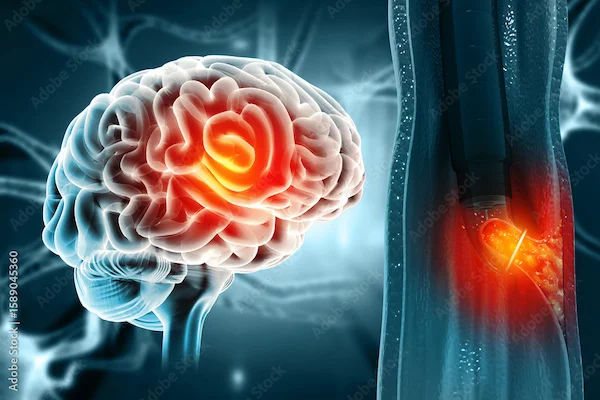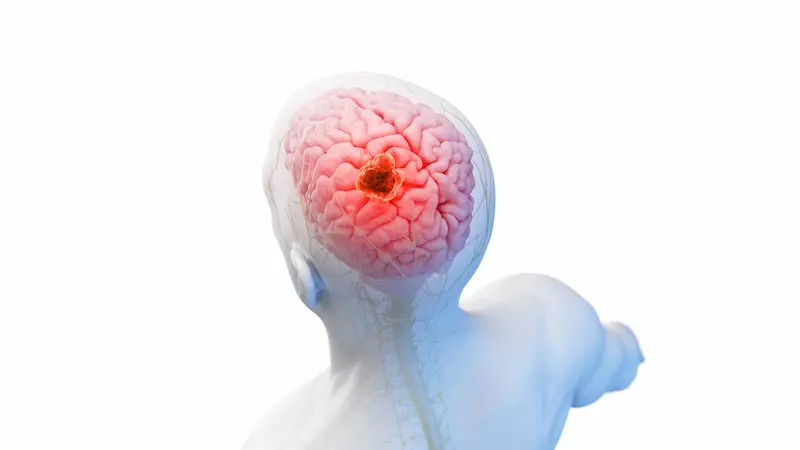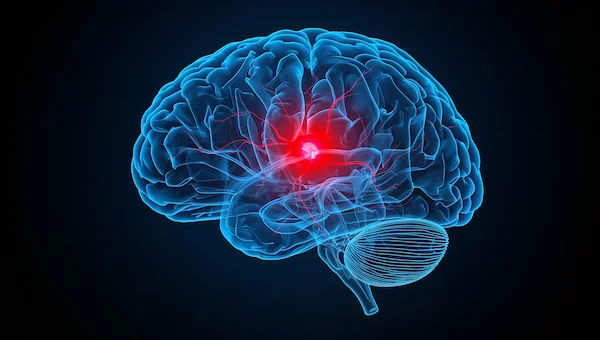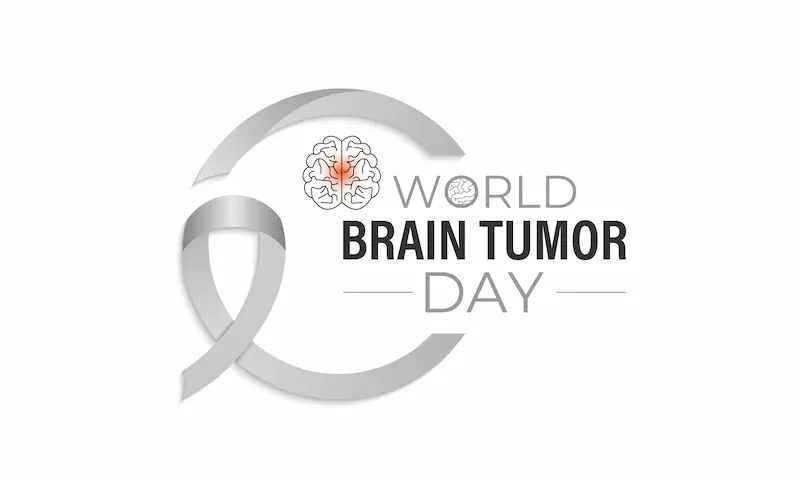Guide to Lifestyle Choices And Brain Tumour Risk
Know about the lifestyle choices for brain tumour risk, what it is, genetics or environmental influence. Learn about how work and environment affect the brain tumour, myths, facts and more.

Written by Dr. Siri Nallapu
Reviewed by Dr. Shaik Abdul Kalam MD (Physician)
Last updated on 13th Jan, 2026
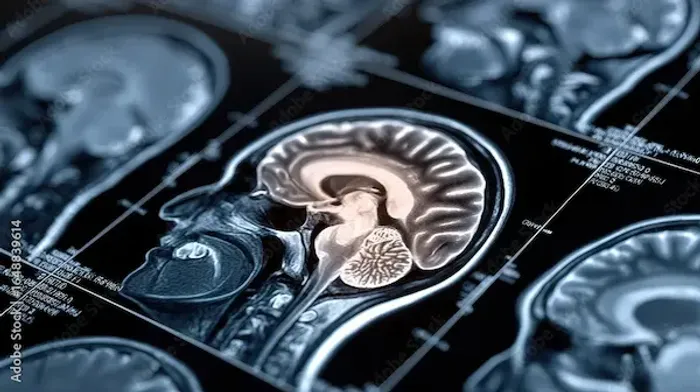
Introduction
It’s natural to ask how your everyday lifestyle choices might influence the risk of a brain tumour. You’ll find plenty of headlines—from “phones cause cancer” to “this superfood prevents tumours” but what does the best evidence actually say? In this guide, we review current science on brain tumour risk, highlight what you can and can’t change, and offer practical lifestyle choices for overall brain and body health. We’ll cover diet, weight, sleep, stress, exercise, mobile phones, radiation from medical scans, hormones, workplace exposures, and common myths. You’ll also learn early
warning signs to take seriously and when to seek care.
Most brain tumours have no clear lifestyle cause, and many popular claims are either unproven or wrong. Still, several choices particularly maintaining a healthy weight, avoiding unnecessary radiation, and managing certain hormone exposures do matter. Others, like smoking and moderate alcohol, aren’t strongly linked to brain tumours but affect many other cancers and diseases.
Consult Top Oncologists
What we know now: a quick evidence map
Most brain tumours arise without a known cause, which can be frustrating to hear. Among established risks, ionising radiation (especially at therapeutic doses or repeated high-dose diagnostic imaging in childhood) clearly increases risk. A handful of inherited genetic syndromes substantially raise risk, but these are rare. For lifestyle factors, the evidence is mixed: obesity is consistently associated with a higher risk of meningioma (a typically benign but sometimes serious tumour), while links between smoking, alcohol, coffee, and common dietary patterns with brain tumours are weak or inconsistent. Mobile phones have been labelled “possibly carcinogenic” by IARC (WHO) since 2011, but more recent large cohort studies are reassuring.
Think in terms of evidence strength:
- Strong: Ionising radiation; certain genetic syndromes.
- Moderately suggestive: Obesity and meningioma; some hormone exposures.
- Limited/suggestive: Air pollution (ultrafine particles), certain occupational exposures.
- Largely unsupported/uncertain: Mobile phones causing brain tumours; smoking/alcohol; head injury as a cause;
specific “superfoods” preventing tumours.
A key reason why causes are hard to pin down is that brain tumours are relatively rare and diverse (e.g., gliomas vs meningiomas), making robust studies challenging. The practical takeaway: focus your lifestyle effort where evidence is most actionable—weight management, prudent use of medical radiation, and informed hormone decisions—while keeping overall brain health practices strong.
Genetics vs environment: what you can and can’t change
Some inherited conditions like neurofibromatosis types 1 and 2, Li-Fraumeni syndrome, von Hippel-Lindau disease, and
tuberous sclerosis, significantly increase brain tumour risk. These syndromes often come with other clinical features and
a family history. If multiple close relatives have had brain, nerve sheath, or certain other tumours, or if tumours occur at
young ages, ask your clinician about genetic counselling.
What you can’t change:
- Your inherited genetic makeup.
- Your age and sex (some tumours like meningioma are more common in women).
What you can influence:
- Your exposure to avoidable radiation and some hormones.
- Your body weight and metabolic health.
- Your occupational/environmental exposures.
Weight and diet: where the signal is strongest
Obesity and meningioma risk
Multiple studies and pooled analyses show a consistent association between higher body mass index (BMI) and
increased meningioma risk, possibly via hormonal and inflammatory pathways. While causality can’t be proven from
observational studies alone, the consistency has led major cancer agencies to list obesity as a risk factor for
meningioma.
Diet patterns that support a healthy weight
- Emphasise minimally processed foods: vegetables, fruits, legumes, whole grains, nuts, seeds, and lean proteins.
- Prefer unsaturated fats (olive oil, nuts, fish) over saturated/trans fats.
- Limit ultra-processed foods and sugary beverages that drive weight gain and inflammation.
Processed meats and nitrates
Nitrites/nitrates can convert into N-nitroso compounds (potential carcinogens) during processing and digestion. While
strong links to brain tumours aren’t established, limiting processed meats is advisable for overall cancer prevention.
Movement, sleep, and stress management
Know about the role of sleep and stress in managing brain tumour risk:
Exercise for weight and brain health
Regular physical activity supports weight control, reduces systemic inflammation, and benefits brain health (mood,
cognition). While direct evidence for lowering brain tumour risk is limited, physical activity helps maintain a healthy
BMI, indirectly addressing meningioma risk. Aim for 150–300 minutes/week of moderate activity plus 2–3 strength
sessions.
Sleep and circadian rhythm
Poor sleep affects appetite hormones, insulin sensitivity, and inflammation—paths linked to weight gain. Protect sleep
with:
- Consistent bed/wake times.
- A dark, cool bedroom and limited screens before bed.
- Morning light exposure to anchor your circadian rhythm.
Stress and inflammation
Chronic stress can nudge habits toward poor diet, inactivity, and poor sleep. Brief daily practices—10 minutes of
mindfulness, breathwork, or a short walk—can lower perceived stress and help maintain healthy routines.
Mobile phones, Wi‑Fi, and EMF
What major studies show
In 2011, IARC classified RF-EMF from mobile phones as “possibly carcinogenic” (Group 2B), based largely on case-control data like INTERPHONE. Since then, large cohort studies, including the UK Million Women Study, have not found increased glioma risk with regular mobile phone use. A Danish cohort following subscribers also reported no clear increase. Overall, current evidence is reassuring at typical exposure levels.
Practical minimisation without fear
- Use speakerphone or wired headset for long calls.
- Text when convenient; download before streaming in low-signal areas.
- Avoid carrying your phone tightly against your head for long durations.
These steps reduce exposure without turning life upside down. But the weight of evidence does not support panic or
extreme measures.
Medical radiation: X-rays, CT scans, and radiotherapy
Ionising radiation is a solid risk factor. Therapeutic doses and repeated high-dose diagnostic imaging in childhood are
of particular concern. A large UK study linked childhood CT scans to a small increase in later brain tumour risk,
underscoring the need to use imaging judiciously and to optimise doses.
Hormones across life stages
Meningiomas often express hormone receptors. Observational studies suggest:
- Pregnancy: Meningiomas may grow temporarily due to hormonal/vascular changes; true causation remains debated.
- Hormonal contraception: Evidence is mixed; some formulations might slightly influence risk, but absolute risk remains low.
- Menopausal hormone therapy (MHT): Some studies report a higher meningioma risk with certain oestrogen-progestin
regimens. Decisions should be individualised based on menopausal symptoms and overall risks.
Actionable guidance
- Discuss personal/family history and migraine or meningioma history with your clinician when choosing contraception or MHT.
- Use the lowest effective dose for the shortest reasonable duration if MHT is chosen.
- Report new or changing neurological symptoms promptly.
Alcohol, smoking, and recreational drugs
For brain tumours specifically, smoking and moderate alcohol do not show strong or consistent associations. However,
both substantially raise risks of other cancers and chronic diseases, including stroke and cardiovascular disease—major threats to brain health. Quitting smoking and moderating alcohol (or abstaining) remain among the most impactful choices for overall longevity and brain function.
Work and environment
The work and environment elements include:
Solvents, pesticides, metals
- Evidence linking occupational exposure (e.g., certain solvents, pesticides, and metals) to glioma is mixed; some studies report associations in specific settings or at high exposure levels, while others do not. Because findings differ by job and exposure intensity, the prudent approach is to follow best-practice protections:
- Use proper ventilation, PPE, and exposure monitoring.
- Follow safety data sheets and substitution principles (choose less hazardous chemicals when possible).
Air pollution and ultrafine particles
A Canadian population-based study suggested that exposure to ultrafine particles may be associated with malignant
brain tumour incidence, but this area is evolving and requires replication. Practical steps—using HEPA filtration
indoors, avoiding heavy traffic corridors for exercise, and supporting clean-air policies—are sensible for overall health. [9]
Head injury, infections, and immunity
Head injury
Contrary to common belief, head trauma is not a proven cause of brain tumours. Some studies note weak associations
that may reflect bias (e.g., injuries leading to scans that discover pre-existing tumours). Overall, evidence does not
support head injury as a causal factor. [1–3]
Allergies/atopy and glioma
Several studies have found an inverse association—people with allergic conditions may have a slightly lower risk of
glioma, possibly due to heightened immune surveillance. This is intriguing but not something to “seek out”; rather, it’s a
clue to biology. [3]
Infections
No consistent link between specific viral infections and common primary brain tumours has been established.
Supplements, coffee, and “brain foods”
Supplements
No supplement has proven to reduce brain tumour risk in the general population. Omega-3s, flavonoid-rich foods, and
adequate vitamin D support overall brain and metabolic health, but they should sit on top of diet quality, not replace it. If you’re deficient in vitamin D or B12, correcting deficiency makes sense for neurological function—Apollo24|7 offers convenient home collection for tests like vitamin D or HbA1c if you’re monitoring metabolic health.
Coffee and tea
Observational data do not show a clear increase in brain tumour risk; some cohorts even suggest neutral or beneficial
brain health outcomes for moderate coffee/tea intake.
Early warning signs and when to seek care
Symptoms worth prompt evaluation include:
- New, persistent, or worsening headaches (especially morning or with exertion/cough).
- Seizures, new-onset in adults.
- Progressive weakness, numbness, or coordination problems.
- Changes in vision, speech, or personality; unexplained confusion.
- Persistent nausea/vomiting without GI cause.
If symptoms persist beyond two weeks, consult a doctor online with Apollo24|7 for further evaluation. Severe, sudden-onset neurological symptoms require urgent emergency care. Early assessment can identify many non-tumour causes and, when needed, lead to timely imaging and specialist referral.
Myths and facts
- Myth: “Mobile phones cause brain cancer.” Current large cohort data do not support an increased risk with regular use.
- Myth: “Head injuries cause brain tumours.” Not proven; evidence is weak and confounded.
- Myth: “Aspartame causes brain tumours.” Safety reviews do not support this at normal intake.
- Fact: “Radiation can increase brain tumour risk.” True for ionising radiation, particularly in childhood or therapeutic
contexts. - Fact: “Obesity is linked to meningioma.” Yes; maintaining healthy weight is prudent.
Staying informed
To evaluate new studies:
- Look for study type (randomised trials are rare here; large prospective cohorts are stronger than small case-control
studies). - Check dose-response relationships and replication across populations.
- Beware headlines from single studies without context.
- Prefer summaries from ACS, NCI, CRUK, and peer-reviewed journals.
Conclusion
While the word “tumour” can trigger understandable fear, it’s empowering to know that most everyday lifestyle choices have little direct impact on brain tumour risk—except for a few, where your decisions can matter. The clearest levers are avoiding unnecessary ionising radiation, maintaining a healthy weight (particularly relevant to meningioma), and making thoughtful hormone decisions with your clinician. Other choices—exercise, sleep, stress, smoking, alcohol, workplace safety, and clean air—pay dividends for overall brain health, even if they don’t dramatically shift tumour risk on their own.
The right mindset is a “risk budget”: spend your effort where the evidence is strongest, apply prudent precautions elsewhere without anxiety, and keep your baseline health habits steady. If you ever notice persistent headaches, seizures, vision or speech changes, or neurological symptoms that worry you, consult a doctor online with Apollo24|7 for guidance and, if needed, imaging or specialist referral. And if you’re tracking metabolic health, Apollo24|7 offers convenient home collection for tests like HbA1c, lipid profile, and vitamin D.
Consult Top Oncologists
Consult Top Oncologists

Dr. Sanchayan Mandal
Medical Oncologist
17 Years • MBBS, DNB Raditherapy, DrNB Medical Oncology
East Midnapore
VIVEKANANDA SEBA SADAN, East Midnapore

Dr Gowshikk Rajkumar
Oncologist
10 Years • MBBS, DMRT, DNB in Radiation oncology
Bengaluru
Apollo Clinic, JP nagar, Bengaluru

Dr.sanchayan Mandal
Medical Oncologist
17 Years • MBBS, DrNB( MEDICAL ONCOLOGY), DNB (RADIOTHERAPY),ECMO. PDCR. ASCO
Kolkata
Dr. Sanchayan Mandal Oncology Clinic, Kolkata
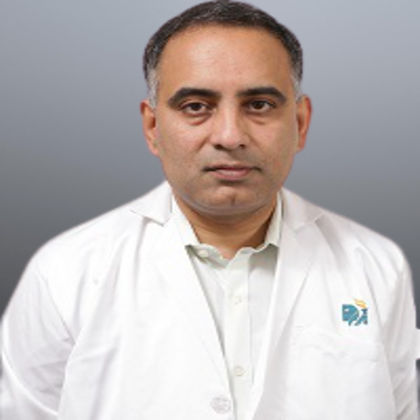
Dr. Raja T
Oncologist
20 Years • MBBS; MD; DM
Chennai
Apollo Hospitals Greams Road, Chennai
(200+ Patients)
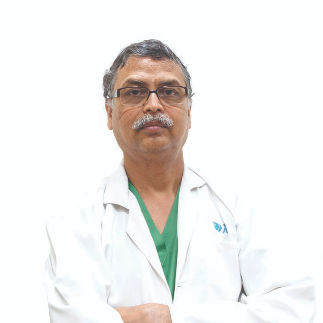
Dr. Praveen Kumar Garg
Surgical Oncologist
26 Years • MBBS, M.S.(Gen.Surg.), M.Ch.(OncoSurg.)
Delhi
Apollo Hospitals Indraprastha, Delhi
(50+ Patients)
Consult Top Oncologists

Dr. Sanchayan Mandal
Medical Oncologist
17 Years • MBBS, DNB Raditherapy, DrNB Medical Oncology
East Midnapore
VIVEKANANDA SEBA SADAN, East Midnapore

Dr Gowshikk Rajkumar
Oncologist
10 Years • MBBS, DMRT, DNB in Radiation oncology
Bengaluru
Apollo Clinic, JP nagar, Bengaluru

Dr.sanchayan Mandal
Medical Oncologist
17 Years • MBBS, DrNB( MEDICAL ONCOLOGY), DNB (RADIOTHERAPY),ECMO. PDCR. ASCO
Kolkata
Dr. Sanchayan Mandal Oncology Clinic, Kolkata

Dr. Raja T
Oncologist
20 Years • MBBS; MD; DM
Chennai
Apollo Hospitals Greams Road, Chennai
(200+ Patients)

Dr. Praveen Kumar Garg
Surgical Oncologist
26 Years • MBBS, M.S.(Gen.Surg.), M.Ch.(OncoSurg.)
Delhi
Apollo Hospitals Indraprastha, Delhi
(50+ Patients)
More articles from Brain Tumor
Frequently Asked Questions
1) Do mobile phones increase brain tumour risk?
Large cohort studies show no increased risk of glioma with regular mobile phone use; IARC classifies RF-EMF as “possibly carcinogenic,” so basic exposure minimisation is reasonable but panic isn’t warranted. (mobile phones and brain tumour risk).
2) Can losing weight really reduce brain tumour risk?
Obesity is consistently linked to higher meningioma risk; maintaining a healthy weight is a sensible step with broader health benefits. (does obesity increase meningioma risk).
3) Should I avoid CT scans?
No—if clinically necessary, CT scans save lives. But it’s wise to avoid unnecessary scans and ask if MRI can answer the question, especially for children. (childhood CT scans brain tumour risk).
4) Do diet or supplements prevent brain tumours?
No specific food or supplement has proven preventive effects for brain tumours. Emphasise a balanced, minimally processed diet that supports a healthy weight. (diet and brain tumour prevention).
5) When should I see a doctor about symptoms?
New or persistent headaches, seizures, or neurological changes warrant prompt evaluation. If symptoms persist beyond two weeks, consult a doctor online with Apollo24|7 for further assessment.

